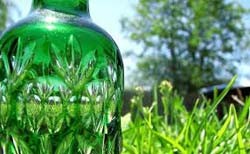Better waste management with microorganisms
Waste management is a major challenge in Europe and all over the world. The European Commission is encouraging growth in jobs and business opportunities in the field of waste management and the recycling sector. The EU-funded BIOASSORT (Improvement of technologies and tools, e.g. biosystems and biocatalysts, for waste conversion to develop an assortment of high added value eco-friendly and cost-effective bio-products) initiative worked to increase the range of microbes and enzymes used for waste valorisation. The researchers screened thousands of microorganisms in Brazil and India to select those most efficient in producing enzymes, ethanol and bioplastics. BIOASSORT assessed different fungal species such as Aspergillus, Pleurotus and Lentinus for their ability to break down lignin, cellulose and xylan. The researchers screened for new organisms producing lactic acid and ethanol, and then selected Lactobacillus acidophilus LPB-04 and Saccharomyces cerevisiae LPB-287 for further testing. Researchers also explored the microfloral biodiversity of India's Western Ghats region to discover new strains with a high potential to produce these added value bioproducts. These included microbes that produce higher-than-normal concentrations of enzymes capable of breaking down cellulose and xylan. BIOASSORT investigated waste formulations and optimised pretreatment processes for mechanically pretreating wastes for conversion. The researchers studied waste products, including brewers' spent grains and newspaper waste, and compared the various pretreatment methods. The research team selected microorganisms by screening the microbial collections for their ability to produce cellulases and other enzymes. They used four strains of Lactobacillus to produce large volumes of lactic acid, more than 40 g/l (84 % yield). Project partners established a database of the microorganisms they isolated and selected during the BIOASSORT initiative. These findings will help the EU to become a world leader in waste management and valorisation using microorganisms.







